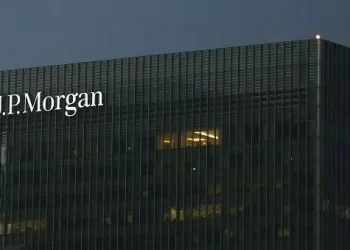Blaming terrorism as well as strike and strife for Pakistan’s economic losses, Federal Minister for Finance Muhammad Aurangzeb informed on Tuesday that the Chinese engineers killed in the Karachi airport bomb blast were part of the team involved in talks with the Pakistan government over re-profiling of its debt.
“I offer my condolence to the people of China, the government of China,” said Aurangzeb in a short address on Tuesday.
“The ones killed were the IPP engineers with whom Minister of Energy Awais Leghari and I were negotiating in terms of our request to re-profile our debt and extend (payment) maturities, so that we can reduce power tariff and provide relief to the public,” Aurangzeb added.
On Sunday, a convoy carrying Chinese staff of the Port Qasim Electric Power Company (Private) Limited was targeted in a terrorist attack near Karachi’s Jinnah International Airport. The attack killed two Chinese nationals and injured another.
In a statement emailed to journalists, separatist militant group Baloch Liberation Army (BLA) claimed the explosion was an attack carried out by them using a vehicle-borne improvised explosive device targeting Chinese nationals, including engineers, according to Reuters.
In his address on Tuesday, Aurangzeb said the engineers represented those Chinese Independent Power Plants (IPPs) who told us that they would “create a win-win situation for China and Pakistan”.
media also reported on Tuesday that Pakistan and Chinese power companies were all set to sign pacts on re-profiling of debts and moratorium on payment of over $16 billion for five and three years respectively during the visit of Chinese Prime Minister Li Qiang.
Hubco likely to follow suit: Four IPPs ink deal to annul pacts early
Pakistan has suffered for several years due to terrorist attacks that have claimed thousands of lives and inflicted damage on an already struggling economy.
Additionally, constant calls for protests and frequent shutter-down strikes have also added to the woes. Islamabad’s go-to strategy to block internet services have been the latest addition to the economic upheaval.
Meanwhile, the minister expressed serious concern over the economic losses incurred due to strikes and strife. “We face serious consequences whenever the government is compelled to shut down businesses and cities due to the law and order situation,” he said, referring to the recent weekend when law-enforcement authorities shut down the federal capital to contain the Pakistan Tehreek-e-Insaf workers’ march towards D-Chowk.
“In Islamabad alone, 0.8 million people were affected in the last 3-4 days due to this kind of strife,” he said.
The finance minister said Pakistan’s economy incurs losses to the tune of Rs190 billion per day due to strike and strife.
“This is the summation of losses incurred in GDP and tax revenue, business disruption, export and IT service loss,” said Aurangzeb, while sharing the figures provided by the Economic Advisory Wing.
Aurangzeb said Pakistan’s total GDP amounts to Rs124 trillion. He said that those conducting strikes should also address their issues through negotiations.
“Whether it is terrorism, strike or strife. These are the setbacks, which our country cannot afford,” Aurangzeb said while urging the masses to refrain from participating in activity which affects Pakistan’s economy.
“We as a government remain committed to consolidate our economic position and attain a sustainable growth path”, he concluded.









